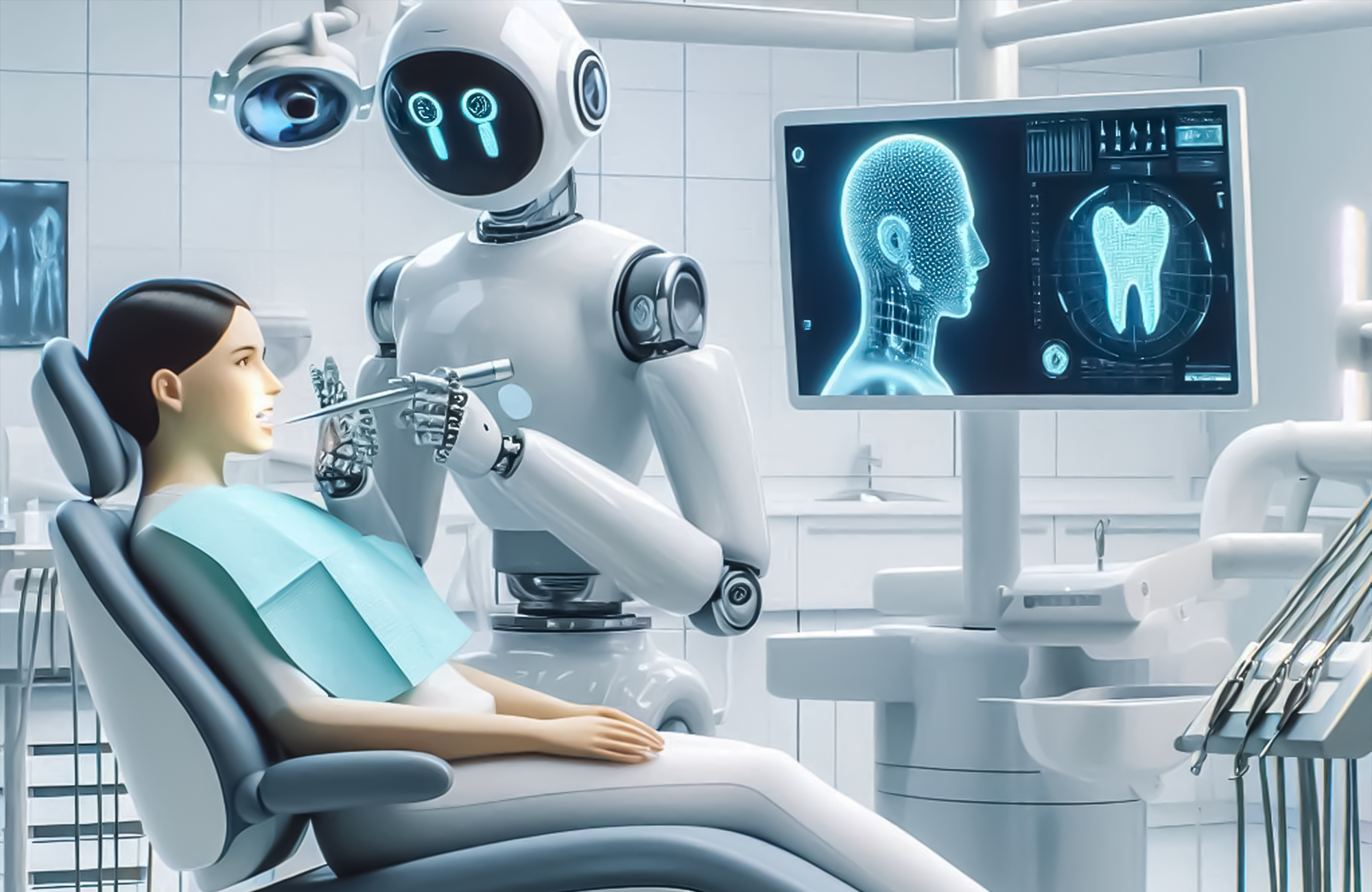AI-Powered Robot Dentist Performs First-Ever Surgery on a Human
This can be taken as the very first time an AI-powered robot dentist operates on a human—truly, an achievement in medicine, one that ushers in the first steps toward applying artificial intelligence for real-time active healthcare.
First Light of AI into Dentistry
The success over a human operation carried out by an AI-powered robot dentist also moves the dentistry field into a new phase. The incidences that bid light indeed to how far robotics, artificial intelligence, and precision have ended are, probably, leaving hope with man that indeed, care can turn into such a sphere of precision and efficiency. It is for this reason that this paper sheds more light on this landmark surgery, underpinned by technology, and what spasms for the future of dentistry.
Artificial Intelligence in Dentistry Technology
The days of low speed and dumb automation, artificial intelligence, and precision are certainly behind us now. This AI-driven dentist robot will help in poring over patient information and deciding on the right procedure to do this process right, up to the point where it comes out perfectly. The technology is configured for perfect executions each time; it is engineered to come up with the best possible outcome with enormous data collections.
Robotic Arm and Tools: This AI dentist comes with an ultra-sophisticated robotic arm which goes to the minutest of details in executing dental operations—due to a totally steady human hand, therefore completely nullifying chances of error due to human beings. There are quite frail robotic means that might support the movements for a human dentist.
Real-Time Monitoring and Adjustment: Even when conducting the surgery, the AI system will monitor the state of the patient and adjust whatever needs to be adjusted. The feedback loop would be excellent, provided that a change of circumstances is safe and appropriate.
Summary of the Procedure: Implant dentistry at the cutting edge powered by AI robotic dentists. When one regards the big difference directly, it even stands to make more sense in line with long-term survival.
Safety to the patient and communication of comfort: AI-monitored patient vitals to take up appropriate techniques of the kinds that would be comfortable enough to make patients feel more at ease and establish a bilateral sense of safety during the procedure. On the other hand, the operation was successful because AI took up complex dental operations independently and successfully.
RESULTS: He passes the test, but all the while, he remembered being surprised now that he would experience nothing more than minor pain; his state was normal, and the revert to condition was proficient. Sure enough, all these great results would be able to allow, with high accuracy and efficiency thanks to the AI-powered robot.
Future Implication on Dentistry
Higher Accuracy and Efficiency: Needlessly, the surgeries made by AI robots—or artificial intelligence robots, in other words—will be much more accurate than is possible by human capacity, thereby resulting in more successful outcomes, cutting back on expenditure for recovery time, and reducing complications.
Increased Access to Care: These cares, being robotic and AI-powered and dentist-delivered, open more doors to equal opportunities of access to every patient that needs it. Put otherwise, this simply means that groups can carry robots to less privileged areas where in most cases, quality care for these populations is a crying need.
Reducing Human Error: Most likely, AI can reduce human errors; therefore, the processes would be made safer for patients and make them healthier.

Challenges and Ethical Issues
Ethical Issues: The actual implantation of AI in surgery throws up several long-term issues based on human observation and job replacement in the dental profession. Such perceived benefits of AI should, therefore, be properly weighted before technique development.
Regulatory issues: The regulatory issues would have formed a very complex webbing. This technological development assures that safety and efficiency will be met, to which dentists can easily adapt.
Establishing Trust with the Patient: The most basic and fundamental competency of AI in dentistry will be the management of patient expectations, as it supports the dentist. Clearly explaining risks and benefits arising out of AI-driven procedures will help build patient trust regarding new technology.
Conclusions
Dentistry is also changing: it is the first robot in history to perform milestone surgery, with AI-enabled tooth drilling—again, augmenting improvement in grounds such as precision, efficiency, and above all, easy access, against the status quo. Sure, pockets of resistance will be there. Truly, one won’t miss this scenario of AI in dentistry; robots at work right at the forefront of our future with health.
More AI and Health Care Revolutions Coming Soon!

The best way to predict the future is
to create it.
— Peter Drucker

Would you let a robot work
on your teeth? 🤖🦷
Share your thoughts in the comments below!




